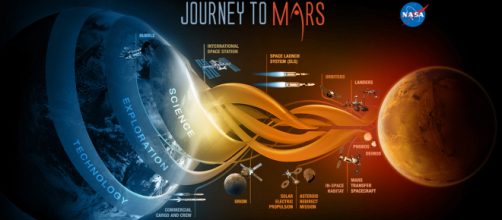The United Arab Emirates (UAE) has plans to send a probe to Mars in 2020. This will be the Arab world's first ever Interplanetary Mission. Plans to create a settlement on Mars are in the works for 2117.
Why should we go?
But why would anyone want to go to Mars? Ask the Science Community and you’ll get a lot of good answers.
The first is that humans are explorers. Sending people to Mars would be the culmination of many scientific dreams. Many people want to be the first Neil Armstrong to step foot on the Mars planet.
But more than just being the first, people like to build and create new things.
Creating a new environment, correcting some of the mistakes we’ve made here on Earth, is tantalizing, to say the least.
Exploring the surface of Mars is something we’ve been only able to do in a very limited way, making this an exciting prospect. As Neil Degrasse Tyson says, Mars is a less oppressive environment than we may think and is a lot better choice than any of the other planets in our Solar System.
Evidence gathered so far indicates that there may have been water on Mars before there was water on Earth. That may mean that there was life on Mars before there was life on Earth. It has been speculated that a meteor may have hit Mars, bounced off, and then hit Earth (which can and has happened) and so bacteria from one planet could have transferred to the other.
Maybe we are Martians after all!
We must boldly go
Some people in the scientific community, believe that settling Mars is a necessity, not just a challenge. As Stephen Hawking said in his 2008 NASA 50th anniversary lecture, “If the human race is to continue for another million years, we will have to boldly go where no one has gone before."
Many in the scientific community believe that the survival of our species does depend upon their colonizing other planets.
Mars is, of course, the closest and most accessible, and therefore the most obvious for the first attempt.
It has also been proven that the attempt to get to Mars has increased the quality of our life here on Earth. One startling example was the blurry hubble telescope. For the first three years after it was launched, because of a flaw in its engineering, the Hubble telescope took blurry images of everything it saw.
In an effort to make use of these images, astronomers developed an algorithm to better extract the information from the images. Eventually, this technology was used by a doctor, who applied this technology to detecting breast cancer in x-ray images. The algorithm was able to do a far better job than the traditional method, the naked eye. Because of that blurry telescope, how many women have been saved?
So it's no longer is the question "Why go to Mars?", the question now is "When?" And of course, "Who will be first?".


